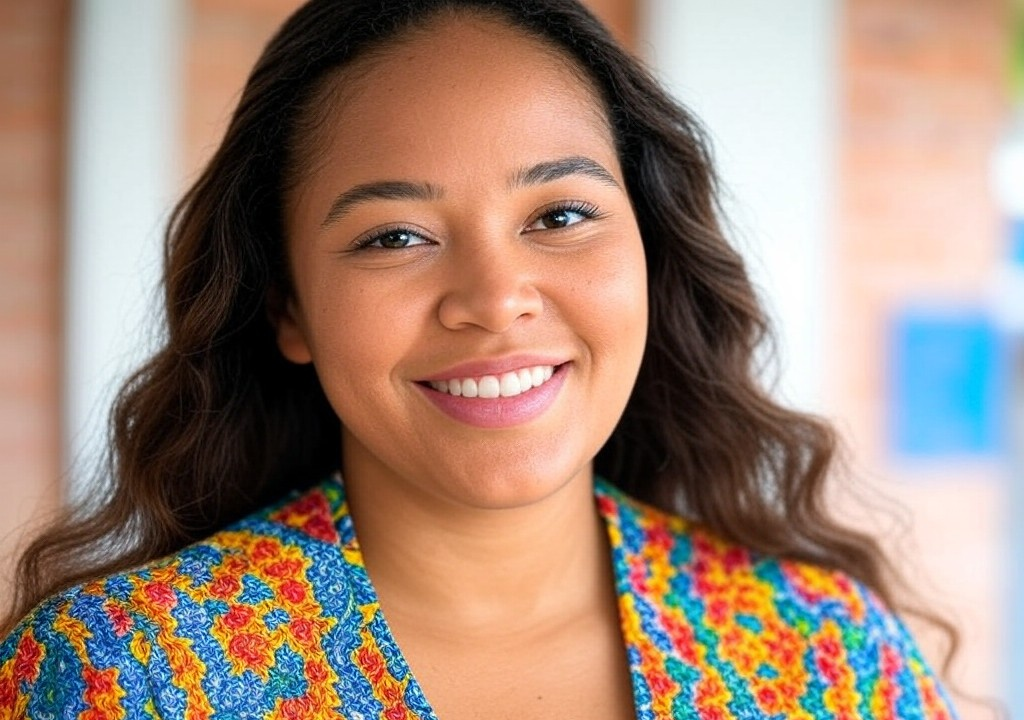The Stories in My Family
There’s a phrase I grew up hearing almost as often as I heard Marc Anthony ballads at my tía’s house: “Todo tiene una razón, m’ija.” Everything has a reason. It was the battle cry of my abuela, Carmen, whenever she sat us down to share one of her infamous cuentos. These weren’t bedtime fairy tales; they were living, breathing family lore. Stories about our ancestors’ grit, heartbreaks, and victories—served with a side of cafecito and a knowing look that meant pay attention. I didn’t realize it then, but those tales planted seeds that shaped how I see relationships, life, and what it means to connect with others.
Here’s the thing: My family’s stories didn’t just teach me about where we’ve been; they taught me how to navigate where I’m going. And if you’re wondering what a story about your great-uncle’s three failed proposals has to do with your own love life, stick with me.
Chapter One: La Abuela Knows Best (Most of the Time)
Let me set the scene: my Abuela Carmen is a 5’2” woman with the energy of a volcano and a laugh that could melt even the iciest gringo heart. She’s lived through more chaos than a telenovela. Growing up in Cuba, fleeing to Mexico during the revolution, and eventually landing in Houston with nothing but her children and a half-baked plan to conquer the unknown.
Her advice on love? Equal parts profound and bizarre.
“Ilé, you need to find someone who will look at you the way your abuelito looked at his dominoes—like the fate of the world depended on it.”
This nugget of wisdom always made me laugh because my abuelo did take his dominoes very seriously. I once watched him slap down a double-six with such dramatic force that my cousin swore he saw stars. But beneath the humor was a deeper message: love thrives in mutual respect and passion, even over seemingly small things.
To this day, I think about that when I’m getting to know someone. Do they light up when I talk about my passion projects, like writing or trying (and failing) to fold pastelitos the way my tía taught me? Do they geek out about their own interests? Passion isn’t reserved for dramatic grand gestures—it’s in how you show up for the everyday things that matter to the other person.
Here’s how this applies to you:
- When you're dating, pay attention to the little things people prioritize. Do they make time for you, even when life gets hectic? Do they encourage your weird obsessions (even if it’s ranking the best Selena Quintanilla songs—by the way, it’s “Como La Flor,” don’t fight me on this)?
If the answer’s yes, you might be onto something worth holding onto.
Cousin Diego and His Great Love Casita Disaster
In a family as loud and loving as mine, every cousin is a character. But Diego takes the crown. He’s the one who spent half his twenties bouncing between business ideas—everything from selling knock-off Houston Astros hats to starting a “luxury” taco truck (spoiler: soggy tortillas don’t scream high-end dining). But my favorite Diego endeavor was The Great Love Casita Disaster.
This story was legend by the time I hit high school. Diego had fallen madly, head-over-heels in love with Julia, a girl who worked at the bakery down the street. In a romantic frenzy, he bought a dilapidated house and declared, “This is going to be our love nest, mi reina!” Except Diego, bless his heart, had never held a hammer in his life.
Fast forward two months: the roof caved in during Houston’s rainy season, Julia left him for a line cook, and Diego had to sell the casita for a fraction of what he paid. The moral of the story according to Diego? “Never commit to something you can’t fix.”
But the real lesson for the rest of us is this: don’t rush love. Julia didn’t need a roofless casita; she probably needed a partner who could communicate and show up consistently.
For those of you prone to leaping before you look:
- Ask yourself if you and your partner are on the same page about big commitments. It doesn’t have to be as dramatic as buying a house together (looking at you, Diego), but even planning a vacation or meeting each other’s families deserves thought and honest communication.
And for the love of Beyoncé, never try to build a foundation on sentiment alone.
The Legend of Tío Martín’s “Perfect” Proposal
Here’s where my family gets messy—and let’s be real, no family that close is without its messes. Let’s talk about Tío Martín, my mom’s older brother. He was the Casanova of his day, charming every woman from the bodega cashier to militant Catholic schoolteachers who usually scared the chanclas off everyone else. When he finally decided to propose to his girlfriend Marisela, the whole family was shocked.
It was the ‘80s. Martín rented a horse-drawn carriage, wore a suit so white it could blind you, and recited a love poem that—genuinely—was plagiarized from a Hallmark card. Marisela said yes, but their engagement lasted three months.
Why? Because Martín thought a showy proposal would fix the fact that they barely communicated. Marisela had been quietly telling him for a year that she wanted them to take salsa classes together, but he shrugged it off because he thought she was joking. Turns out, she wasn’t. She wanted a partner who danced with her metaphorically and literally.
This story has stuck with me for a different reason. I think we often fall into the trap of mistaking “perfect” gestures for perfect relationships. But the truth is, there’s no substitute for listening to your partner—not grand proposals, not romantic vacations, not even serenading them with a guitar under their window at midnight (although, to be fair, that sounds pretty cute).
Next time you’re in a relationship, think about:
- Are you actually hearing what your partner wants, or are you doing what you think they want?
- Similarly, are you expressing your needs authentically instead of hoping your partner can guess them? Spoiler: They can’t.
Relationships die on the hill of assumptions. Don’t let yours be one of them.
Every Story Has Its Takeaway
If you’re lucky, you come from a family full of characters who teach life lessons without even meaning to. My abuela still drops wisdom bombs disguised as domino metaphors. Diego survived the Love Casita Disaster and went on to marry someone who couldn’t stop laughing at his ridiculous ideas. And Tío Martín? He finally took salsa classes—just don’t ask him to spin without tripping.
These stories remind me that relationships aren’t about perfection; they’re about presence. It’s in how you show up—not with shiny white suits or castle-sized gestures—but with intention, kindness, and the willingness to listen.
So next time you find yourself wondering if love is in the cards for you, just know:
Passion matters. Communication matters more. And every mistake is just another story waiting to be told at la próxima reunión familiar.
Now go out there, play your cards (or dominoes) wisely, and may your love story be as wild and wonderful as the ones we all pass down.




















